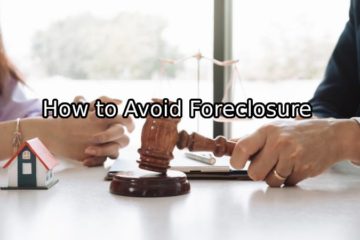Real estate investors rarely use their own cash to buy properties outright. Instead, they typically cover the down payment on the property with their own cash and finance, or borrow, the remainder of the purchase price.
Table of Contents
How Real Estate Financing Works
Real estate financing usually works like this:
1. A real estate investor or prospective homeowner applies to a bank or other financial institution to secure a mortgage loan for an amount equal to the property’s total purchase price minus the down payment.
2. The financial institution loans the money at a specific interest rate, which represents the amount of interest the borrower must pay the financial institution annually, expressed as a percentage. For instance, a 5% interest rate on a $100,000 loan requires the borrower to pay $5,000 in interest per year.
3. The borrower buys the property and begins to pay off the mortgage. Mortgage payments usually pay down a mix of the principal—the amount of the actual loan—plus interest.
Real estate investors aim to secure financing that creates a positive cash flow, meaning that the rent that a property generates exceeds the mortgage and other monthly costs.
Investment Loans vs. Owner-Occupied Loans
Financial institutions prefer to lend money to so-called owner-occupiers, borrowers who plan to live in the properties for which they need financing. As a result, owner-occupiers can typically secure loans with lower interest rates (owner-occupied loans) than loans available to real estate investors (investment loans). Investors can qualify for owner-occupied loans, but only by living in the property for at least two years. Once you’ve lived in the property for two years, you can rent out the property for the life of the loan while still paying the original owner-occupied interest rate.
How Lenders Evaluate Borrowers
Since lenders consider real estate investors riskier borrowers than owner-occupiers, they evaluate investors with stricter criteria than those they use to assess ordinary borrowers. Lenders consider a number of factors, including:
- Income: Lenders want to be sure you have a reliable and steady flow of income available to pay back your loan. They typically assess your current income, as well as income you might receive from the new property, to confirm that you’ll have enough positive cash flow to cover expenses and mortgage payments each month.
- Credit score: A high credit score (above 700) gives lenders confidence that you’ll pay your mortgage in full and on time each month. Lenders often demand higher credit scores from investors than from owner-occupiers, so be sure your credit is in top-notch shape before applying for an investment loan.
- Experience: Lenders prefer real estate investors who have experience: such borrowers have a history of paying back loans that lenders can examine, plus a track record of buying and managing property. Together, these factors can ease lenders’ concerns about the prospect of foreclosure, which is a common result when amateur investors buy property they can’t afford or manage effectively. If you have no experience in real estate investing, lenders may offer you higher interest rates to hedge their risk of foreclosure.
- Age: Lenders are most comfortable loaning money to borrowers in the prime of their earning years (mid-30s to mid-50s). If you don’t fall into that age group, the lender may ask to see documents that show that you’ll be able to pay back the loan, such as recent savings or investment account statements.
Down Payment Options
Though creative—and often risky—financing can enable you to buy property with little or no money down, it’s best to buy only a property for which you can afford a 20% down payment. A 20% down payment helps you:
- Gain equity: Paying a down payment grants you immediate partial ownership of the property. As property values rise, so will your stake in the property.
- Avoid mortgage insurance: If you don’t put at least 20% down, your lender will require you to buy private mortgage insurance (PMI), which can add about 10% to your monthly mortgage payments.
- Invest with discipline: Amateur investors often try to buy more property than they can afford—buying several properties at once for “no money down”—and expect to pay back down-payment loans with rental income or by selling properties at a quick profit. But this strategy is very risky. Buy only properties for which you can afford a 20% down payment and the ongoing monthly costs that you expect to have to pay.


